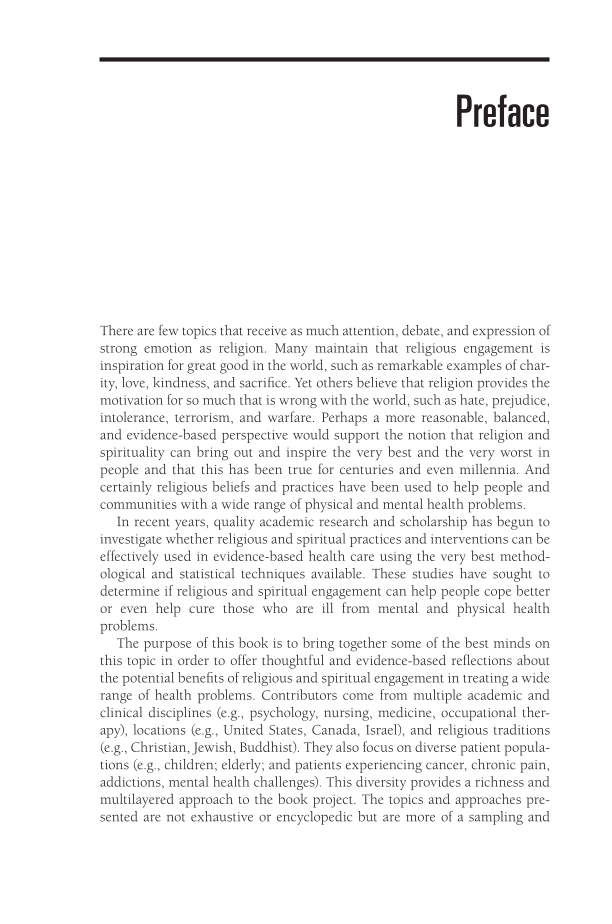Preface There are few topics that receive as much attention, debate, and expression of strong emotion as religion. Many maintain that religious engagement is inspiration for great good in the world, such as remarkable examples of char- ity, love, kindness, and sacrifice. Yet others believe that religion provides the motivation for so much that is wrong with the world, such as hate, prejudice, intolerance, terrorism, and warfare. Perhaps a more reasonable, balanced, and evidence-based perspective would support the notion that religion and spirituality can bring out and inspire the very best and the very worst in people and that this has been true for centuries and even millennia. And certainly religious beliefs and practices have been used to help people and communities with a wide range of physical and mental health problems. In recent years, quality academic research and scholarship has begun to investigate whether religious and spiritual practices and interventions can be effectively used in evidence-based health care using the very best method- ological and statistical techniques available. These studies have sought to determine if religious and spiritual engagement can help people cope better or even help cure those who are ill from mental and physical health problems. The purpose of this book is to bring together some of the best minds on this topic in order to offer thoughtful and evidence-based reflections about the potential benefits of religious and spiritual engagement in treating a wide range of health problems. Contributors come from multiple academic and clinical disciplines (e.g., psychology, nursing, medicine, occupational ther- apy), locations (e.g., United States, Canada, Israel), and religious traditions (e.g., Christian, Jewish, Buddhist). They also focus on diverse patient popula- tions (e.g., children elderly and patients experiencing cancer, chronic pain, addictions, mental health challenges). This diversity provides a richness and multilayered approach to the book project. The topics and approaches pre- sented are not exhaustive or encyclopedic but are more of a sampling and
Document Details My Account Print multiple pages
Print
You have printed 0 times in the last 24 hours.
Your print count will reset on at .
You may print 0 more time(s) before then.
You may print a maximum of 0 pages at a time.










































































































































































































































































